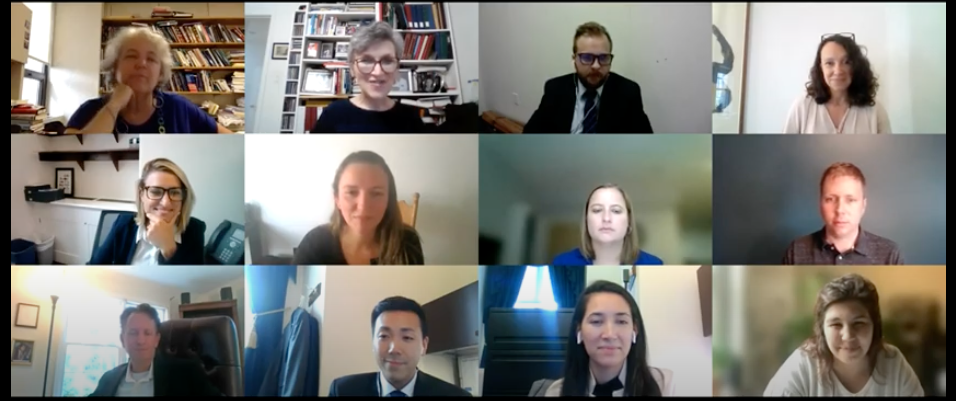Chapter Spotlight: New Jersey-Philadelphia SSN Organizes Policy Shark Tank
“The Policy Shark Tank was an amazing experience for our staff, exposing them to bold, leading edge policy ideas.” - Kari Osmond, Chief of Staff to Congresswoman Bonnie Watson Coleman
On the popular TV show Shark Tank, entrepreneurs present their business ideas to a panel of judges, or “sharks”, who can choose to invest, if they are convinced it’s a good idea. High stakes, rewarding payoffs, and interesting pitches have made this show a lasting favorite. But what if this model doesn’t need to apply only to the world of business?
That’s precisely what James Gee thought, former chief of staff to Congresswoman Bonnie Watson Coleman of New Jersey’s 12th District. In a conversation with New Jersey-Philadelphia SSN chapter leader Julia Sass Rubin, the two decided to launch a new, creative way for SSN members to bring their ideas to someone who could actually implement them: a Policy Shark Tank.
Rubin immediately saw the value of creating such a space, saying:
“From the minute James suggested this type of event, I knew we had to give it a try. It’s not every day you can present your research and policy ideas directly to a representative in Congress.”
Kari Osmond (Chief of Staff), Alex Huang (Legislative Director), Mike Shanahan (Communications Director), and Carianne Lee (Legislative Assistant) of Congresswoman Coleman’s office served as the panel of “sharks”, ready to be pitched on evidence-based policies their office could consider supporting.
“The Policy Shark Tank was an amazing experience for our staff, exposing them to bold, leading edge policy ideas. I’d encourage others to take part in similar discussions as we search for innovative ways to move the nation forward,” said Osmond of the event.

First up to pitch was Will B. Payne, Assistant Professor of Geographic Information Science at the Edward J. Bloustein School of Planning and Public Policy at Rutgers University. Payne discussed the negative impacts of recent changes to Census data that make the data less reliable for researchers, policymakers, and citizens alike. In response, he proposed specific legislation that could correct the potential downstream harms to smaller, rural, and minority communities, and to the many users of Census data products.
Next, Bruce D. Baker, a Professor in the Graduate School of Education at Rutgers, drew on his new book Educational Inequality and School Finance to show how school funding methods continue to exacerbate racial disparities. He argued that this requires increased and targeted federal aid to close the gap and proposed audits of school finance systems to identify these inequities.
Finally, Lenna Nepomnyaschy, Associate Professor in the School of Social Work at Rutgers, explained how child support debt is associated with worse outcomes for children. Most child support debt is owed to the state, not directly to the family, and it affects fathers’ employment and ability to invest in their children. She proposed legislation to set reasonable child support orders and stop punishing fathers in ways that impede their ability to work and provide for their children.
Following the event, Congresswoman Coleman’s staff connected with the researchers who presented to have longer follow up conversations on their work and policy ideas. The New Jersey-Philadelphia chapter is also looking ahead, hoping to plan similar events again in the future with policymakers at many levels of government.
Learn more about the New Jersey-Philadelphia chapter here.
